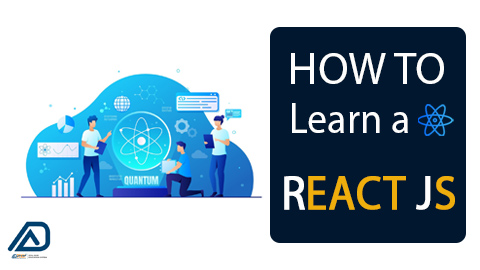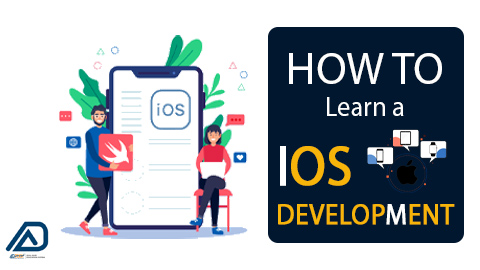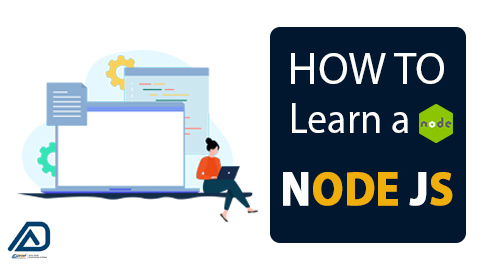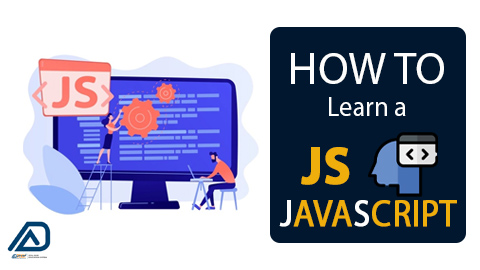What you'll learn
Growth of Online Businesses: The rise of e-commerce and the digital transformation of businesses have led to an increased demand for professional web design services.
Startups and Entrepreneurship: India has seen a surge in startups and entrepreneurial ventures, many of which require well-designed websites to establish an online presence.
Web Design Agencies: Numerous web design agencies and studios have emerged in major Indian cities, offering a wide range of design services, including website development, UI/UX design, and e-commerce design.
UI/UX Design Focus: User interface (UI) and user experience (UX) design have become integral to web design in India, as businesses and organizations recognize the importance of providing intuitive and user-friendly online experiences.
Responsive Design: With the increasing use of mobile devices, responsive web design is a crucial aspect of web development in India, ensuring websites function effectively across various screen sizes.
Outsourcing Hub: India is a popular outsourcing destination for international clients seeking cost-effective and high-quality web design services.
Freelancers and Independent Designers: A growing number of freelance web designers operate in India, offering their expertise to clients both locally and globally.
Remote Work Opportunities: Many Indian web designers have embraced remote work, collaborating with clients and agencies from around the world.
What you'll learn
JavaScript: A strong foundation in JavaScript is essential. You'll need to understand the language, its syntax, data structures, and concepts like variables, functions, and asynchronous programming.
React: React is a JavaScript library for building user interfaces. You'll need to become proficient in React to create the UI components for your mobile app. This includes understanding React's component-based architecture and state management.
React Native Fundamentals: Learn the basics of React Native, including how to set up a development environment, create a new project, and structure your code. You'll also learn about JSX (a syntax extension for JavaScript used with React), component lifecycle methods, and state management.
Navigation: Mobile apps often have complex navigation structures. React Navigation is a popular library for implementing navigation in React Native apps. You'll learn how to create different types of navigation stacks, tabs, and drawers.
Styling: You'll learn how to style your components using the built-in styles, as well as libraries like StyleSheet, which help you create responsive and platform-specific designs.
Data Management: You'll need to understand how to fetch and manage data in your app. This may involve making API calls, handling data storage, and using state management libraries like Redux or MobX.
What you'll learn
Learn the Basics of Swift: Swift is the primary programming language for iOS development. Your first objective should be to understand its syntax, data types, and basic programming constructs.
Understand UIKit: UIKit is a fundamental framework for building iOS user interfaces. Learn how to create views, buttons, labels, and other UI elements, and how to use Interface Builder to design app layouts.
Master Xcode: Familiarize yourself with the Xcode integrated development environment (IDE), which is essential for iOS app development. Learn how to navigate the IDE, create and manage projects, and utilize its debugging and testing tools.
App Lifecycle: Gain a deep understanding of the iOS app lifecycle, including how apps launch, run, enter the background, and terminate. Learn how to handle various app states effectively.
Navigation and Storyboards: Learn to use storyboards to design app navigation and interfaces, including how to implement navigation controllers, tab bar controllers, and segues.
Table Views: Master table views and understand how to display lists of data in iOS apps. Learn how to populate and customize table view cells.
User Authentication: Learn how to implement user authentication and authorization in your apps. This might include email/password logins, social media logins, or other authentication methods.
Networking and APIs: Learn how to make network requests and handle data from web services and APIs. Familiarize yourself with URLSession and JSON parsing.
Debugging and Testing: Develop skills in debugging and testing your iOS apps. Learn how to identify and fix bugs and optimize your code.
Performance Optimization: Understand how to optimize your app's performance, including reducing memory usage, optimizing code, and improving user experience.
CCC (Course on Computer Concepts)
Why Computer Education most importing? Digital Literacy: In today’s digital …
What you'll learn
Microsoft Word: Microsoft Word is a word processing software used for creating and editing documents. When learning Word, you'll gain skills in formatting text, creating headers and footers, working with tables, inserting images, creating lists, and more. Word is commonly used for writing reports, essays, letters, and other text-based documents.
Microsoft Excel: Microsoft Excel is a spreadsheet application used for data analysis and calculations. In Excel, you'll learn to create and format spreadsheets, use mathematical and statistical functions, create charts and graphs, and manage data. Excel is widely used in business for financial analysis, data management, and reporting.
Microsoft PowerPoint: Microsoft PowerPoint is a presentation software used to create slideshows and visual presentations. When learning PowerPoint, you'll acquire skills in designing slides, adding text and multimedia elements, creating animations, and delivering effective presentations. PowerPoint is frequently used in academic, business, and professional settings.
What you'll learn
JavaScript Fundamentals: While Node.js focuses on server-side development, you'll still need a strong foundation in JavaScript, including concepts like variables, data types, functions, and control flow.
Asynchronous JavaScript: You'll learn how to work with asynchronous JavaScript, understanding callbacks, promises, and async/await, which are crucial for handling non-blocking I/O operations.
Node.js Basics: You'll gain an understanding of the Node.js runtime environment, how to install it, and how to run JavaScript code on the server. You'll also explore the Node.js event loop, which is central to its non-blocking nature.
Core Modules: Node.js provides a set of built-in modules for tasks like file system operations, network communication, and data manipulation.
npm (Node Package Manager): You'll get familiar with npm, the package manager for Node.js, which allows you to install, manage, and publish third-party packages and libraries.
Working with Databases: You'll learn how to interact with databases in Node.js. This can include using database libraries like MongoDB / MySQL, or connecting to databases through Object-Relational Mapping (ORM) tools like.
Error Handling and Debugging: You'll gain knowledge on how to handle errors gracefully and debug Node.js applications effectively.
What you'll learn
Component-Based Development: React is centered around a component-based architecture. You'll learn how to create reusable, self-contained UI components that can be combined to build complex user interfaces. This approach makes your code more modular and maintainable.
Rendering and Re-rendering: You'll understand how React handles rendering and re-rendering. React efficiently updates the user interface by comparing the Virtual DOM with the actual DOM, making it performant and responsive.
State Management: You'll learn how to manage the state of your application using React's built-in state management. This includes setting and updating component state, and understanding how state changes trigger component re-renders.
Props: You'll work with props (short for properties) to pass data from parent components to child components. This is an essential mechanism for sharing information and configuring components.
Lifecycle Methods: React components have a lifecycle, and you'll learn how to use lifecycle methods to execute code at specific points in a component's lifecycle, such as when it's mounted or updated.
Handling Events: You'll learn how to handle user interactions and events, such as clicks and form submissions, and how to respond to these events within your components.
Conditional Rendering: React allows you to conditionally render components and elements based on certain criteria. You'll learn how to show or hide elements dynamically.
Lists and Keys: You'll understand how to work with lists of data and the importance of using keys to help React efficiently update the UI when dealing with dynamic lists.
Routing: While not part of React core, you'll often learn how to integrate a routing library (such as React Router) to manage navigation and routing within your single-page applications.
State Management Libraries: You might explore state management solutions like Redux or the Context API for more complex applications where managing global state is necessary.
Java Script
Why JavaScript is Important? JavaScript is important for several reasons, …
What you'll learn
Syntax and Structure: You'll start by learning the basic syntax of JavaScript, including variables, data types, and how to write and structure code.
Document Object Model (DOM):You'll explore the DOM, which is the representation of web pages in the browser. JavaScript allows you to manipulate and interact with the DOM to change content and respond to user actions.
Asynchronous JavaScript: JavaScript is asynchronous, and you'll learn how to use callbacks, promises, and async/await to manage asynchronous operations, such as making HTTP requests to fetch data from a server.
Object-Oriented Programming (OOP) in JavaScript: You'll delve into OOP principles like encapsulation, inheritance, and polymorphism, as JavaScript is an object-oriented language.
Error Handling: You'll understand how to handle errors and exceptions using try...catch blocks and throw statements to ensure your code is robust.
Functional Programming Concepts: JavaScript supports functional programming. You'll learn about higher-order functions, closures, and functional programming patterns.
Browser APIs: You'll explore various browser APIs that JavaScript provides, enabling you to work with the browser environment, including interacting with the user, handling form data, and working with cookies and local storage.
JSON and Data Handling: You'll learn how to parse and stringify JSON data, which is essential for sending and receiving data from APIs and web servers.
Events and Event Handling: You'll understand how to manage and respond to various events, such as clicks, keypresses, mouse movements, and touch events
ES6 and Modern JavaScript: You'll stay up-to-date with the latest features and enhancements introduced in ECMAScript 6 (ES6) and beyond
- 1
- 2








